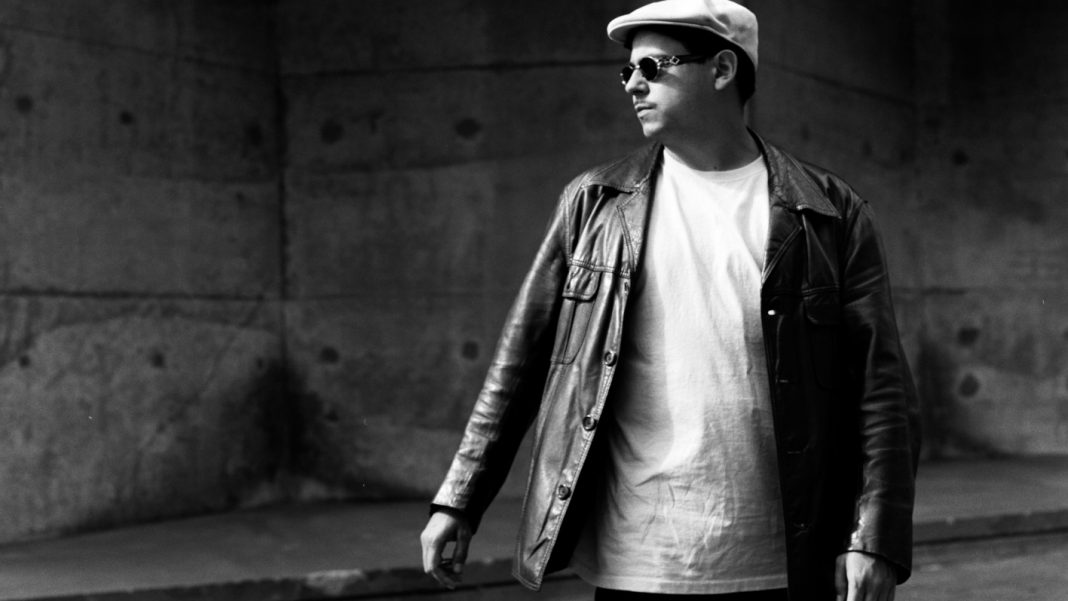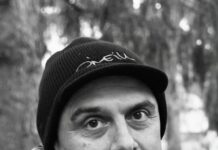
Foto: Star Of Persia (Luca Durán)
„You can always rely on the residents. They know the club, the crowd, the sound system, and they are a pillar of the musical identity of a club, just as important as the architecture, the acoustics or the interior design,“ Nick Höppner once pointed out in Groove. Our bi-monthly Resident Podcast aims to give them the respect that they deserve.
The eighth instalment of the Groove Resident Podcast is a special one in more than one way. First off, the Zurich club whose resident delivers a mix brimming with classics this time is temporarily closed and, much like others around the world, faces an uncertain future will the entire globe is being brought to a grinding halt by the COVID-19 pandemic. Also, Luca Durán – formerly known as Look Like – is the first resident who does not even based in the same country as his spiritual home. His mix, he tells us, was recorded in his new apartment in Amsterdam.
But the Akoya Circles founder is more than capable of touching crowds from a distance, and his Groove mix makes no exception. Sneaking in some forthcoming material on his own imprint, the producer and DJ cunningly navigates between murky ambient sounds, throbbing electro basslines and fluttering breakbeats. It’s a musical diversity that represents one of the many facets of Zurich’s Zukunft club, home also to Jimi Jules and other DJs. Here’s hoping that sets like this one will be soon be heard and felt on its dancefloor.
Can you still remember the first time you’ve visited Zukunft?
Yes! It was back in 2012. I went there on a Thursday with a good friend and I remember having a great night.
How about your first DJ set there – how did that come about and how did it go? And when did you take up a residency at Zukunft?
The first time I played at Zukunft was a year later, in November 2013, when I was invited by a close friend of the club who wanted to introduce up-and-coming local artists. During this time I often visited my friend Lexx, who was working in a record shop nearby called Zero Zero. Besides digging for new music, I really enjoyed the exchange and music talks with him. He put me in touch with Alex Dallas, one of the owners of Zukunft and also label boss of Drumpoet Community, where I released the B.A.B.E. EP in mid 2015. With the release I started playing there more often and things developed over time. In 2017 we started with our Akoya Circles label nights.
What have you learnt during your residency at Zukunft?
By performing regularly at the same location, one gets to know the club and the acoustics and develops a sensitivity towards the audience. This leads to more self-confidence and you start to experiment and test how far you can go musically. You see how other artists do their work and that inspires you to make the best of it.
What does the job of a club resident require of you that one-off sets at other clubs do not?
Apart from being open minded about music, it is an advantage if you know your way around and are able to adapt musically and technically according to the night and mood.
Is there a specifically memorable night that you had at Zukunft during your time there?
I have a lot of great memories, but I would say it was the first label night we did with Akoya Circles. It was also the release party of our first release and all my friends helped to promote the evening. It was such a nice atmosphere, it felt like everyone was there just for the music and enjoying it themselves. The kind of night you wish it would never stop.
Even though the Zurich techno culture has been declared part of the UNESCO intangible cultural heritage and despite the annual Street Parade being widely considered the biggest techno party on earth, a club like Zukunft seems to be rather the exception than the norm when you look at the city’s nightlife. What role does club culture play beyond prestigious awards, how firmly is it embedded in Zurich’s everyday life?
Zurich certainly has a strong club culture. For a long time, the city was the place with the most clubs per square meter in Europe. People like to go out and a lot of great things happen. Zukunft is definitely an exception in Zurich’s nightlife as they have always worked on versatile line-ups and great residents. They support young and local artists and also take risks by inviting non famous quality to the city.
How would you characterise the collaboration between politics and the authorities on the one side and club culture on the other? Drug checking for example has been a staple in Swiss nightlife for a while now, however alternative gathering spots like Bern’s Reitschule has been repeatedly targeted by the police. Is there enough collaboration between state and subculture?
Compared to other cities in Europe, there is cooperation and exchange between the authorities and club culture. In Zurich there is the association BCK which promotes the concerns and interests of Zurich’s clubs and bars and represents them in politics, business and the public. In the 80s and early 90s, Zurich’s Platzspitz Park was an open place for drug use and especially for heroin. People came from all over the place, as politics did not react to them for a certain period of time. In the mid 90s, the authorities decided to close the park. The hasty closure showed that repression alone will not solve the drug problems. The authorities have learned from this and it has led to a more informative and preventive policy. Since 2001, there has been a place in Zurich called Safer Party where you can have a drug check. In Switzerland, each canton has a different police tolerance and political background. From what I have heard, Bern has stricter laws than Zurich. It is sad that Reitschule has been targeted by the police so often.
In 2016, you founded your label Akoya Circles, that after a few releases with your own music has been opened to the contributions of other artists. What is the concept behind the imprint?
Akoya Circles at the beginning was founded to present my music and the people around me without being dependent on other labels. After the third release we started to work with Nicola Misic aka Parco Palaz on his first EP. Since we already knew each other, the collaboration and the dynamic felt great. The concept builds on talented individuals and tries to nurture that to bring out their most personal music rather than trying to make them fit a specific „label sound“. The only thing we care about is quality music that is authentic and that we feel needs to be heard. Parco Palaz just finished a mini LP that will see the light before summer. We are really excited for that release and looking forward to sharing more upcoming projects.
Apart from putting out music through Akoya Circles, you have also released records on Drumpoet Community, Mistress or Royal Oak. Your last EP on Akoya Circles however marked a turning point: it’s the first record under your given name, whereas previously you had only released music under your Look Like moniker. What triggered this change?
There was no particular trigger. During the last few years of working under a pseudonym, I was able to learn a lot and improve what I like to do. Last year I felt ready to continue the journey under my given name, so it wasn’t really a change, but rather part of the process.
In regards to style, you have stayed true to yourself: your music draws heavily on the sound of the eighties. A while ago, you have paid homage to the pioneers of the Japanese techno-pop sound, Yellow Magic Orchestra, with a mix comprising their material. What fascinates you about this particular music and YMO’s specifically?
I discovered electronic music as a teenager when I went to parties and for some time I associated mostly club music with it. When I came across musicians like YMO, a new perspective opened up for me. I realised how boundless and playful electronic music can be. As a teenager getting into music production, it really impressed me.
What was the idea behind your contribution to our Groove Resident Podcast?
I recorded the mix in my new apartment in Amsterdam. It’s a little insight into records from musicians in my environment, classics that have been in rotation lately and of course some upcoming music from the label.
Last but not least: What are your plans for the future – and what’s happening at Zukunft next?
I just moved to Amsterdam a few weeks ago, where I brought most of my studio equipment with me. Now I’m working on my first album, as well as an upcoming EP and a remix for Michel Turtle. With Akoya Circles we are preparing the next release of Parco Palaz, which will be out in May/June. I also have a new live set that I will perform very soon, and in May I will hopefully be back at Zukunft for our label night, to which we invite the boss of Versatile Records, Gilb’R.
Stream: Luca Durán – Groove Resident Podcast 8
01. Parco Palaz – Surface (Akoya Circles)
02. Biosphere – Cloudwalker (Origo Sound)
03. G.M – L.O.V.E. Ambient (UMM)
04. Kekkotronics & LTJ – First Job (Acid Job Remix) (Irma Records)
05. Midi Rain – Yes (Vinyl Solution)
06. Siegmar Fricke – Investing In the Future (Infoline)
07. Kruton – Knight Lore (Wrong Era)
08. Musicology – Obsessed (B12)
09. Dawl – Let’s Go (Craigie Knowes)
10. Human Beings – Like A Drug Pt 2 (See Saw)
11. Soso Tharpa – Sea Mojo (Future Times)
12. Acid Jesus – Hibernation Drive (Klang Elektronik)
13. Deepside – Prélusion (F Communications)




